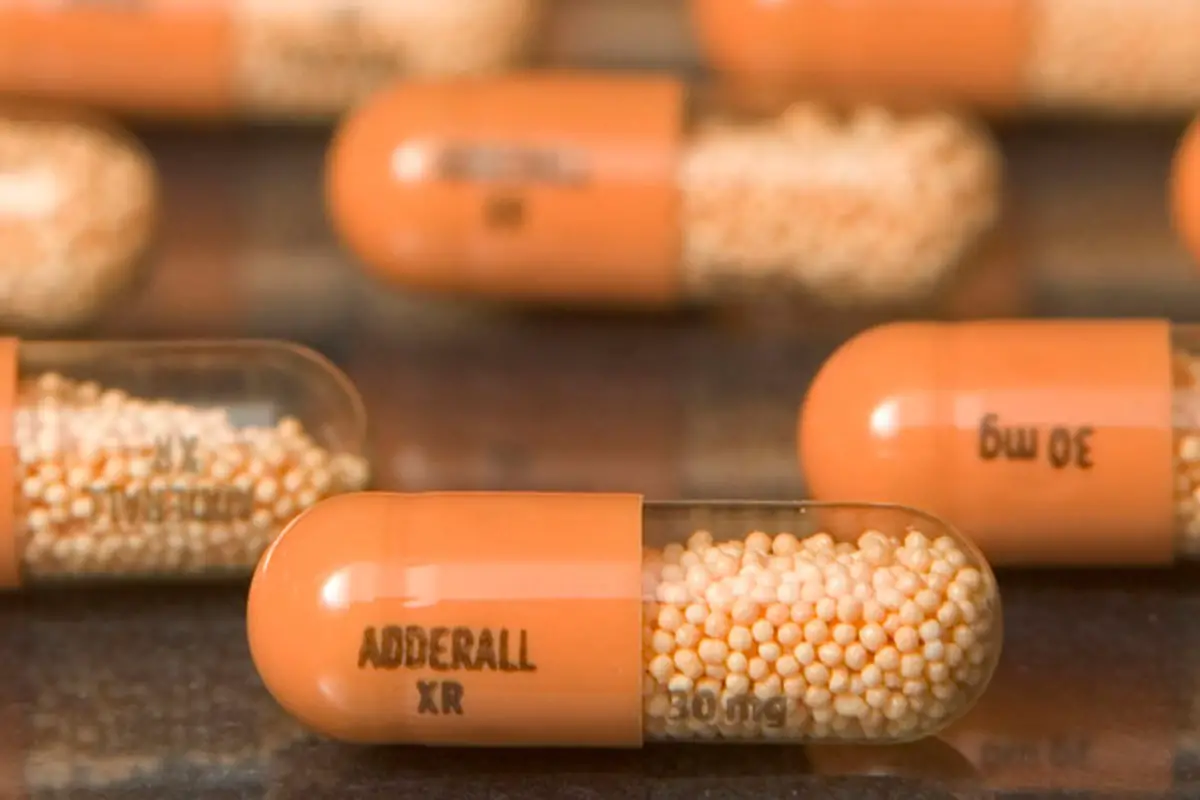Popping the Question
Students everywhere have been tempted with the drug’s promise of increased focus, but scientists maintain that unprescribed use can severely damage users’ health.
By Brittany Hurlbut, George Fox University
A light turns on outside the library window as evening comes early to George Fox University (GFU). It’s a school night in the library, and the individual study benches near the windows are humming with life.
Backpacks packed full of textbooks and folders sometimes take up a chair of their own, as students hurry to finish projects that are due tomorrow or finish reading that they’ve left until the last minute.
It’s a stressful place to be. Luckily, there’s a fairly easy fix.
You might happen to have a friend of a friend who has been diagnosed with ADHD, and just so happen to have their number. In just a few minutes, you can buy an Adderall off them, take it and finally be able to concentrate.

It seems like a wonder drug, and it’s so easy. It’s no wonder that so many college students have turned to a quick fix drug that seems to offer so much with such few downsides.
One student, Alex*, started off by saying that Adderall is something that he hasn’t taken in a while. He hasn’t needed to, he says. But there were times in his life that were more stressful, and Adderall provided a convenient solution.
“For me, I see everything I have to do and I can’t focus on it. When I’m on Adderall, I know what I have to do and what order I have to do it in,” says Alex, a student athlete who spends a good part of his day in class or in practice.
When asked about any negative side effects, Alex’s friend Lucy* shook her head.
“You don’t feel different. Your attention to detail and thought processes just keep going” she says.
“I have heard some other people say that they felt anxiousness and jitteriness, but I just have a lot of energy. Sometimes, I’m a little distracted,” says Lucy.
Lucy also actually has Adderall prescribed for her, to stymie her ADHD, so jitteriness is something she takes Adderall to counteract.
“Sometimes I take it two, three times a day to concentrate,” she says.
Though Alex hasn’t had that response to Adderall, many other students report feeling anxious and jittery after taking the drug, most of who bought it from a friend that it’s prescribed for.
In an anonymous online survey, students reported feeling “shaky and fast,” as well as “very sick” after taking Adderall.
Increased prescription drug misuse on campus is often linked by students to an increase in expectations by parents, coaches and professors.
“Once you’re past college, you won’t need Adderall for anything,” says Alex.
Lucy echoes the view.
“There’s just so much to do and concentrate on. Especially when you’re an athlete and have to balance practice on top of everything,” she says.
Alex and Lucy also talked about how different groups of students are more likely to turn to Adderall as a way of managing their grades.
“A lot of the foreign exchange students buy Adderall because they’re so pressured into keeping their grades up,” says Alex.
Other majors that are especially prone to buying Adderall are engineers, due to their grueling class schedule and need to produce a lot in a short amount of time.
Nursing majors, according to Alex, do not usually take the drug despite having a tough class load because they’re tested regularly.
The threat of testing, however, does not worry everybody. According to several members of sports teams, the drug is fairly common among athletes, even though they could be tested at any time.
In fact, someone who has taken Adderall will show up as positive for amphetamines on a regular drug test, which could implicate them in possibly using methamphetamines.
Despite that risk, Alex felt pretty confident.
“They say that athletes here get tested, but I’ve been here four years and haven’t gotten tested once,” he says.
Rick Muthiah, GFU’s director of Learning Support Services, was not surprised to hear about the phenomenon.
“I’ve read about this happening among college students. I don’t recall if I’ve ever heard of it happening here. I can’t say I’m surprised, but I’m disappointed,” Muthiah says.
Muthiah works with students who are in crisis to provide academic support, and he echoed Alex and Lucy’s sentiment that college students have a lot on their plate.
Despite Adderall’s ability to help focus, Muthiah had some qualms about students using it to boost their performance.
“If it’s a controlled substance, it’s just not legal,” he says.
“If it was more of a commonly used substance it would be a philosophical question, and even then I believe there are better ways to increase your focus.” Muthiah says.
Muthiah talked about how the students he engages in often struggle to focus because of the complex world we live in, where there’s so much competing for our attention.
Despite the anxiety that school can cause, he focused on the importance of self-care over dependence on a substance.
“It all comes back to ‘how to we practice focus?’ I want us to think about ways to do that without relying on instant gratification,” he says.
Currently registered with his office at GFU, there are 39 students who identify as being diagnosed with ADD or ADHD, and perhaps many more who choose not to register with the school.
Many of these students, according to Alex, Lucy and the anonymous survey, receive requests from their peers to share their Adderall, usually at the price of around $5 per pill. For some students, it can turn into a lucrative business, with a prescription they can refill at will.
Despite Alex and Lucy’s insistence that they’ve never felt any negative side effects, research would seem to show otherwise.
According to an article in the Journal of Law and Education, “Using Adderall for long periods of times can result in more drastic side effects, especially for those who do not actually have ADHD. Misuse of the drug over time can result in severe psychological or physical dependence.”
This dependence seems to show in that despite the availability of learning support from offices like Muthiah’s, many students continue to say that they prefer the ease of a chemical high to time management and study tips.
“I use it because I can get so much done and do it well,” Alex says. “It is a study method.”
It’s a late night in the George Fox University library again, and the individual study benches are packed with students exchanging flashcards, study tips, and possibly some little blue pills.
Buoyed on the wave of focus that Adderall brings them, many students like Alex and Lucy will be able to finish their homework before midnight, pack their backpack full of books and head home to turn out the light.
The promise of a short-term fix is alluring to some, and the promise of a stress-free life after college is even better.Until then, for some, the five-dollar-focus that Adderall brings feels like it’s enough.
*names withheld














I’m a nursing student at GFU and would just like to say that we’re only drug tested when being admitted into the School of Nursing. Students are not regularly tested for drugs… I’ve never heard of a nursing student here take Adderall and it’s probably because we are more educated on the dangers of self medicating.
[…] Feature Image Source: Study Breaks […]